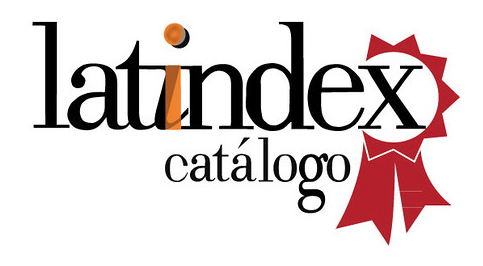Invirtiendo las clases de hidráulica y riegos = Flipping hydraulic and irrigation classes
DOI: https://doi.org/10.20868/abe.2017.2.3562
Texto completo:
PDFResumen
Resumen
En este artículo se presenta una experiencia educativa basada en la combinación de la clase inversa y el aprendizaje experiencial en los siguientes temas: hidrología e irrigación. Se han desarrollado herramientas multimedia alojadas en la plataforma edpuzzle para la preparación de clases magistrales y prácticas reales de manejo de riego llevadas a cabo en el laboratorio de hidráulica y riegos. La plataforma referida permite crear o reutilizar materiales interactivos que requieren la participación de los estudiantes ya que las preguntas se intercalan en los videos proporcionando una primera evaluación de desempeño por parte del alumno, válida para diseñar prácticas por el docente. También proporciona información y nivel de comparación para la evaluación del desempeño una vez realizada la práctica. Después de ver los videos y contestar a las preguntas, los estudiantes han hecho prácticas en el laboratorio y asistido a las clases magistrales con el material de apoyo proporcionado por los docentes. Una de las ventajas de la metodología empleada conocida como clase inversa es que reduce precisamente el tiempo dedicado a las clases magistrales ya que éstas se realizan a través de los videos. Este tiempo ganado se puede dedicar a poner en práctica los conocimientos teóricos, a resolver dudas y a realizar prácticas en el laboratorio. Todo ello encaminado a lograr un aprendizaje significativo. Por último, se han sometido los alumnos a un proceso de evaluación vinculado a la valoración inicial recogida de material audiovisual. La experiencia ha demostrado la validez de la metodología, su capacidad para proporcionar información útil para el diseño físico de la práctica por parte del profesor y las clases magistrales y una mejora en el uso potencial de las prácticas por los estudiantes involucrados.
Abstract
In this paper an educational experience is presented based on the combination of flipped classroom methodology and experiential learning in the following subjects: hydrology and irrigation. The approach has been the development of hosted multimedia tools in the edpuzzle platform for the preparation of master classes and actual management practices of irrigation conducted in the hydraulic and irrigation laboratory. The platform referred allows creating or reusing interactive materials requiring student participation as questions are interspersed in the videos providing a first performance evaluation by the student, valid for designing practices by the teacher and gives information and comparison level for performance evaluation once the practice is made. After viewing videos and answering questions students have done practices in the laboratory with the support material provided by teachers. One advantage of the methodology known as flipped classroom is precisely reducing the time spent on lectures as they are carried through the videos. This gained time can be devoted to implement the theoretical knowledge, to answer questions and perform laboratory practices. All aimed at achieving meaningful learning. In the end, students have undergone an evaluation process linked to the initial assessment collected from audiovisual material. Experience has shown the validity of the methodology, its ability to provide useful information for the physical design of the practice and for the master classes by the teacher and an improvement in the potential use of practices by the students involved.
Palabras clave
Referencias
Roehl, A., Reddy, S.L., Shannon, G.J. (2013). The flipped classroom: An opportunity to engage millennial students through active learning. Journal of Family and Consumer Sciences, 105(2), 44.
Milman, N.B. (2012). The flipped classroom strategy: What is it and how can it best be used?. Distance Learning, 9(3), 85. Academic OneFile, go.galegroup.com/ps/i.do?p=AONE&sw=w&u= monash&v=2.1&id=GALE%7CA305660562&it=r&asid=83eb2cb972cfc092f59ad15b94e4f337. Accessed 31 May 2017.
Tucker, B. (2012). The flipped classroom. Education next, 12(1).
Bishop, J., Verleger, M. (2013). The flipped classroom: a survey of the research. 120th ASEE annual conference and exposition, Atlanta, june 23-26, 2013.
Herreid, C.F., Schiller, N.A. (2013) Case studies and the flipped classroom. Journal of College Science Teaching, 42(5): 62-66.
Mason, G.S., Shuman, T.R., Cook, K.E. (2013). Comparing the effectiveness of an inverted classroom to a traditional classroom in an upper-division engineering course. IEEE Transactions on Education, 56(4): 430-435. DOI: 10.1109/TE.2013.2249066
Mason, G.S., Shuman, T.R., Cook, K.E. (2013). Comparing the effectiveness of an inverted classroom to a traditional classroom in an upper-division engineering course. IEEE Transactions on Education, 56(4), 430-435.
Amresh, A., Carberry, A.R., Femiani, J. (2013). Evaluating the effectiveness of flipped classrooms for teaching CS1. In Frontiers in Education Conference, 2013 IEEE.
Wagner, D., Laforge, P., Cripps, D. (2013). Lecture material retention: A first trial report on flipped classroom strategies in electronic systems engineering at the University of Regina. Proceedings of the Canadian Engineering Education Association. DOI: http://dx.doi.org/10.24908/pceea.v0i0.4804
Abeysekera, L., Dawson, P. (2015). Motivation and cognitive load in the flipped classroom: definition, rationale and a call for research. Higher Education Research & Development, 34(1), 1-14. DOI: http://dx.doi.org/10.1080/07294360.2014.934336
Jinlei, Z., Ying, W., Baohui, Z. (2012). Introducing a New Teaching Model: Flipped Classroom. Journal of Distance Education, 4, 46- 51.
Kim, M.K., Kim, S.M., Khera, O., Getman,
J. (2014). The experience of three flipped classrooms in an urban university: an exploration of design principles. The Internet and Higher Education, 22, 37-50. DOI: https://doi.org/10.1016/j.iheduc.2014.04.003
Mataix, C. (1970) “Mecánica de Fluidos y Máquinas Hidráulicas”. Ediciones del Castillo.
Losada, A. (2000) “El Riego: fundamentos hidráulicos”. Ediciones Mundiprensa.
Juana, L. “Apuntes asignatura Ingeniería Hidráulica” No publicados.
Enlaces refback
- No hay ningún enlace refback.
Copyright (c) 2021 Autor / BY-NC-ND

Este obra está bajo una licencia de Creative Commons Reconocimiento-NoComercial-SinObraDerivada 4.0 Internacional.













